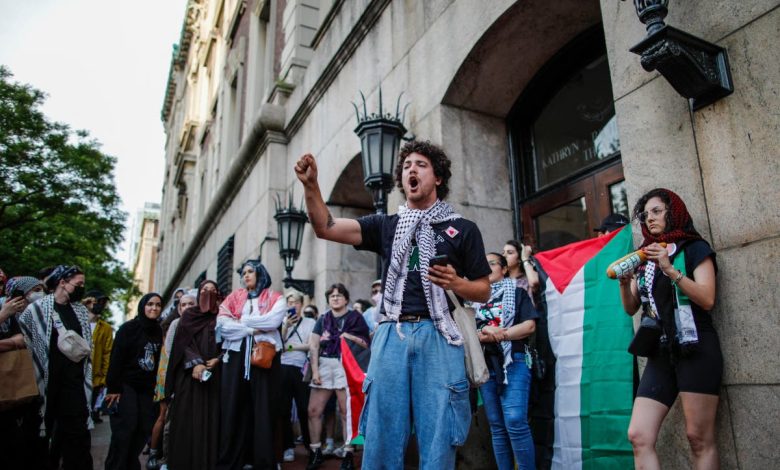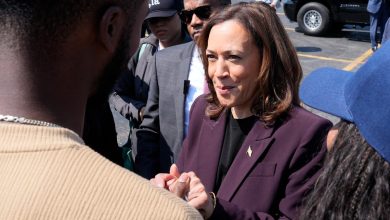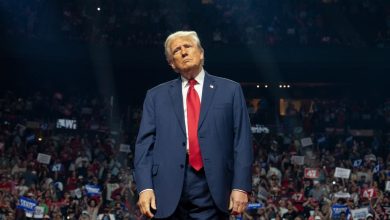Prosecutors drop charges against Columbia students arrested at pro-Palestinian protests

Prosecutors dropped all criminal charges against dozens of pro-Palestinian student protesters arrested in April after occupying and barricading a building at Columbia University in New York City, a Manhattan court was informed on Thursday.
Hundreds of students seized Hamilton Hall, an academic building that is home to the school’s undergraduate Columbia College and the Dean’s office, on 30 April protesting Israel’s war on Hamas in Gaza.
They unfurled banners from the windows and barricaded the doors of the hall that have symbolic value to the protesters as one of the several buildings occupied during a 1968 civil rights and anti-Vietnam War demonstration on campus.
Student protests over the war in Gaza spread like wildfire across the US, following the lead set by Columbia University students. The protests were met with police crackdowns and mass suspensions.
Charges were dismissed against 31 of the 46 people arrested in connection to occupation of Hamilton Hall due to lack of evidence and prosecutorial discretion.
The prosecutors, however, refused to drop the trespass charges against 13 defendants, two of whom were Columbia students. They were told that the cases against them would be dropped if they avoid being arrested for next six months, reported NBC News. However, they have declined the offer and will return to court next month on 25 July.
Another arrested protester accepted the offer earlier in June.
Meanwhile, a protester James Carlson, who has no affiliation with the University, has two cases opened against him, including that of burning an Israeli flag prior to the takeover and for damaging police surveillance camera in jail.
The hearing at the Manhattan Criminal Courthouse came seven weeks after Columbia administrators called in hundreds of armed and heavily armored police officers to the university’s campus in a high-profile law-enforcement response that was broadcast live on national news channels.
The police detained 46 protesters after clearing a weeks-old encampment on a nearby Columbia lawn. They were arrested on the night of 30 April about 20 hours after taking over the academic building and were initially charged with trespass in the third degree, a misdemeanor.
At least nine of the 46 protesters arrested sustained injuries beyond minor scrapes and bruises, according to medical records, photographs shared by protesters, and interviews.
Informing the court about his office’s decision to not prosecute the protestors, Stephen Millan, a prosecutor in the Manhattan district attorney’s office, said the demonstrators wore masks and covered surveillance cameras, and there was insufficient evidence to show that any individual defendant damaged property or injured anyone.
No police officers were injured during the arrests, the prosecutor noted. None of the arrested students had any prior criminal history, and all were facing disciplinary proceedings, including suspensions and expulsions, by Columbia.
“All these matters are dismissed and sealed in the interest of justice,” Judge Kevin McGrath announced in the courtroom where dozens of defendants and their supporters appeared with keffiyeh scarves around their shoulders. The scarves have become a symbol of the pro-Palestinian movement.
A Columbia spokesperson declined to comment on Thursday’s developments in court.







